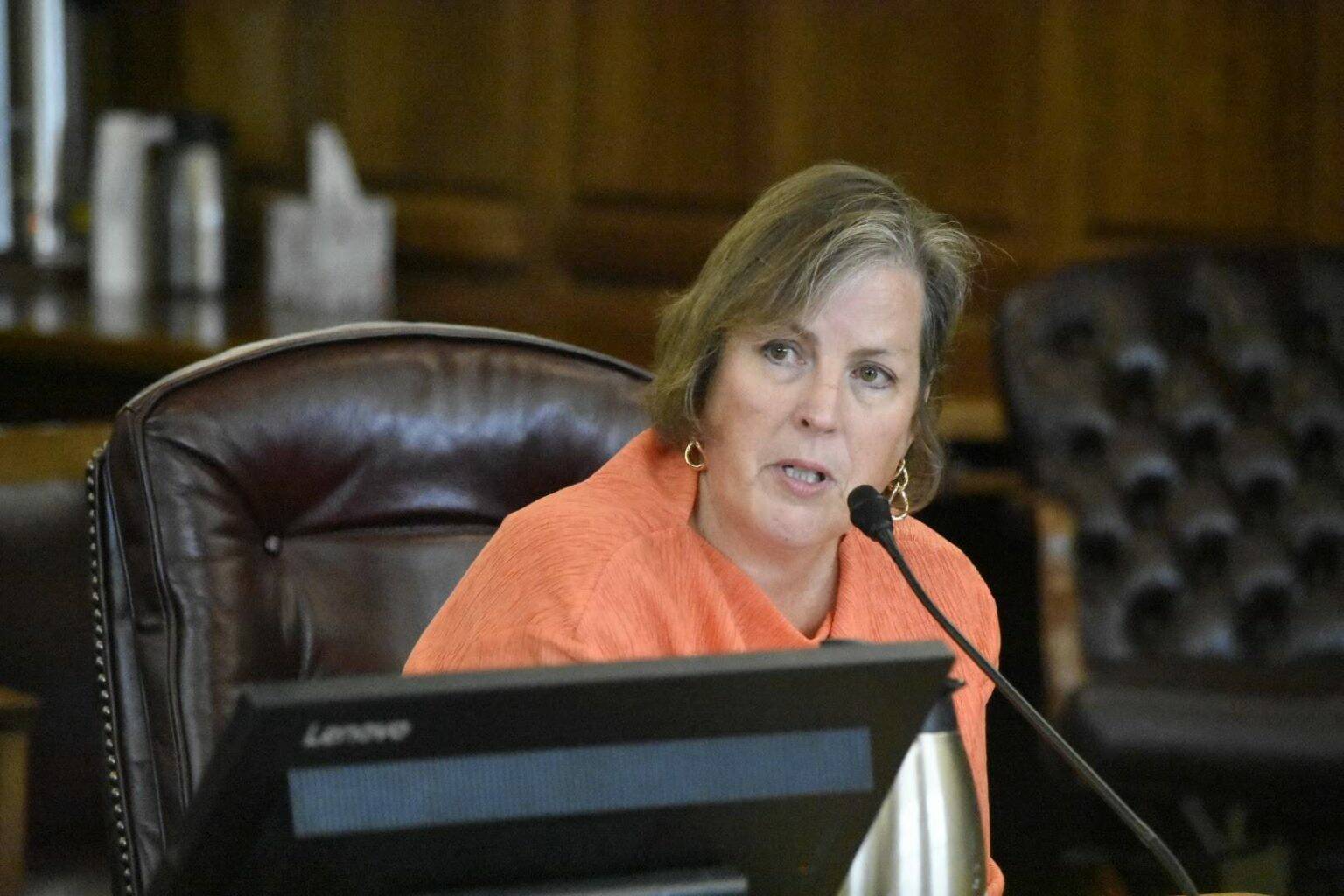ANCHORAGE — The former head of the Alaska Permanent Fund Corp. claims her firing was “political retribution” by board members appointed by Gov. Mike Dunleavy.
Dunleavy, a Republican seeking reelection, denied any involvement in Angela Rodell’s removal last month, the Anchorage Daily News reported.
The corporation’s board has provided no explanation for Rodell’s Dec. 9 dismissal. The vote was 5-1, with the lone dissenting vote cast by the only board member not appointed or reappointed by Dunleavy.
Rodell was a commissioner of the state Department of Revenue under then-Gov. Sean Parnell, also a Republican, and had led the corporation since 2015.
She and Dunleavy clashed over spending from the earnings of the nest-egg Alaska Permanent Fund. Earnings traditionally have been used for the annual checks residents receive from the state’s oil-wealth fund, but lawmakers in 2018 began tapping them to help pay for government.
Rodell advised lawmakers to stick with a rules-based approach for spending from the fund, in line with resolutions from the board. A 2018 law passed by lawmakers calls for limits on withdrawals that Dunleavy previously proposed exceeding to boost the size of dividend checks.
“I believe my removal to be political retribution for successfully carrying the board’s mandate to protect the fund and advocate against any additional draws over the (percent of market value) spending rule … which is contrary to Governor Dunleavy’s agenda,” Rodell said in a letter to the Alaska Legislature’s budget and audit committee.
The committee, which oversees the corporation’s operations, held a hearing on Monday over Rodell’s dismissal amid fears the fund is becoming politicized.
Rodell’s belief “is a hypothesis that many share — because it’s been out there — that has not yet been proven,” said committee chair, Sen. Natasha von Imhof, an Anchorage Republican.
Rodell told the Anchorage Daily News she wants her reputation cleared and is considering legal action.
“I need my reputation. I want that vindication. I want people who Google my name to see that I wasn’t fired for cause,” Rodell said.
Rodell also claimed the board “got rid of me so they can have someone they can control and manipulate in the executive director’s seat.”
Valerie Mertz, the corporation’s chief financial officer since 2012, was named interim executive director in December while the board searches for a permanent replacement.
“One of the goals when the Alaska Permanent Fund Corporation was established was to protect the fund from political influence, which is why a six-member Board of Trustees was created — they serve as fiduciaries to the fund. I was not involved in any decision-making related to the termination of APFC’s executive director,” Dunleavy said in a statement provided by the governor’s office.
“I learned of the termination just like everyone else did, following the trustees’ executive session. Anyone who suggests I had any influence over this decision is simply wrong,” he said.
Paulyn Swanson, the corporation’s communications director, said trustees will not discuss the decision to fire Rodell because it took place in a private executive session. Rodell’s salary was $389,000 in 2021, Swanson said in an email to The Associated Press.
“Consistent with the Alaska Open Meetings Act, the confidentiality of executive session is in place to protect an individual’s reputation and character. Therefore, it is not appropriate for the board to comment on the former executive director’s performance at this time,” she said.
In a December letter to legislators, board chairman Craig Richards, a former Alaska attorney general, said the confidentiality is “designed to protect Ms. Rodell’s reputation, not to obfuscate the board’s grounds for its decision.”
Days after Rodell was fired, Dunleavy released his proposed budget, which does not call for withdrawing from earnings more than the 2018 rules call for. He previously proposed breaking those rules to increase the size of dividend check paid to residents.



